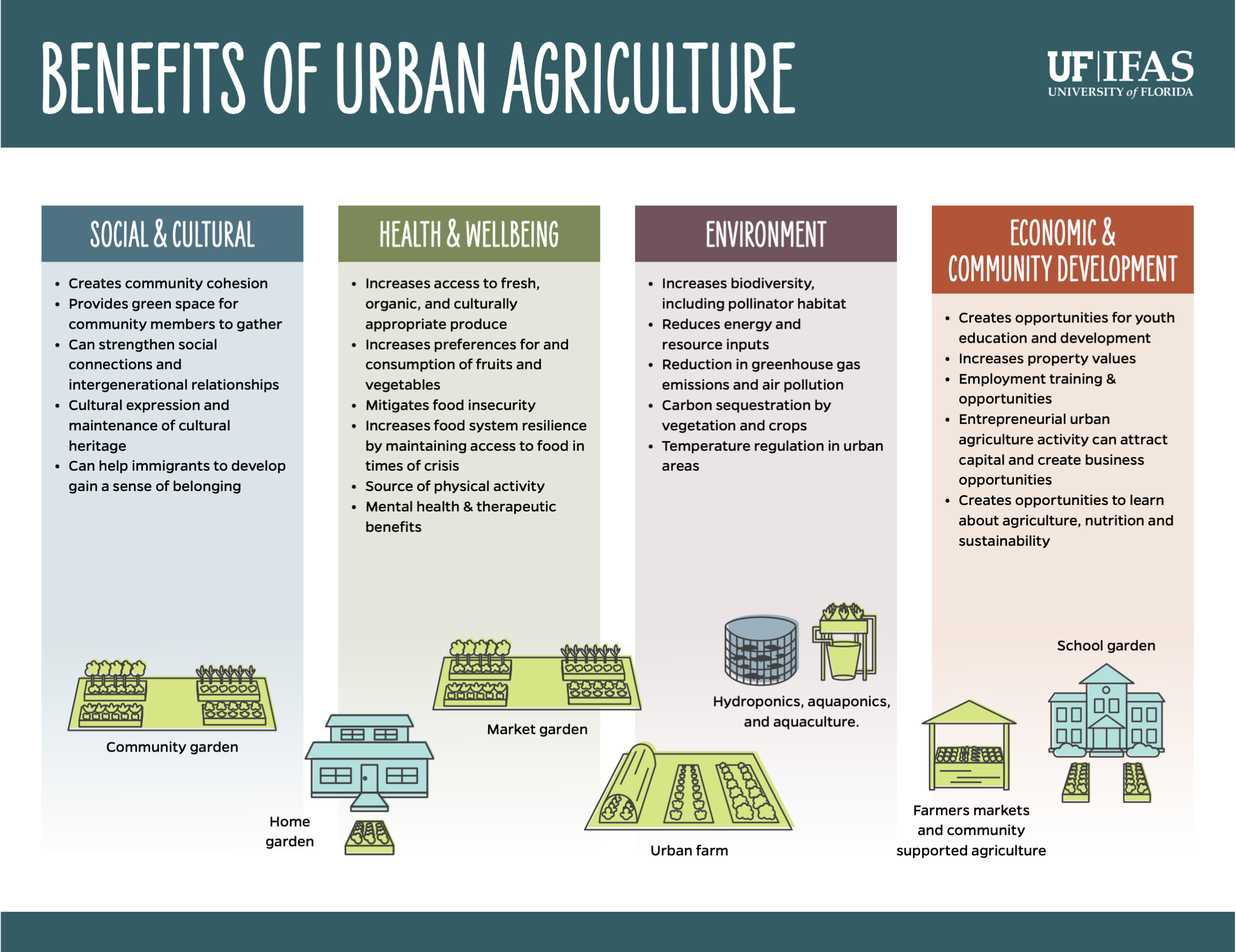Urban Agriculture: The production, processing, distribution, and sale of food within urban and suburban areas for noncommercial/hobby, commercial, educational, or nonprofit purposes. Examples of these activities include: food producing gardens (community, backyard, institutional, market, or rooftop); edible landscaping; bee, poultry, and animal keeping; farmers’ markets, CSAs, mobile produce trucks; urban or market farms; and innovative food-production methods, such as hydroponics, aquaponics, and aquaculture.
Infographics:
What is Urban Agriculture?
Benefits of Urban Agriculture
-
Tool Kits & Guidebooks
Urban Farms
- Urban Farm Business Plan Handbook (Partnership for Sustainable Communities, 2011)
- Urban Agriculture Tool Kit (USDA, 2016)
- Growing Urban Agriculture: Equitable Strategies and Policies for Improving Access to Healthy Food and Revitalizing Communities (Policy Link, 2012)
- Dig, Eat, and Be Healthy: A guide to growing food on public property (Change Lab Solutions)
School and Community Gardens
-
EDIS Documents
Taxes and Regulations
- How to apply for a greenbelt agricultural tax assessment (Thomas, Caracciolo, and Campbell, 2021)
- The Florida Right to Farm Act (Caracciolo, Thomas, and Campbell, 2021)
Agritourism
- Florida's Agritourism Laws (Henry and Stofer, 2021)
- Florida's Agritourism Building and Fire Codes (Henry and Stofer, 2020)
Aquaculture
- Overview of Urban Aquaculture (Roan et al., 2019)
- A practical guide for aquaponics as an alternative enterprise (Tyson and Simonne, 2021)
Indoor systems
School Gardens
Organizations with useful resources for producers
If you are an urban farmer looking for more resources in commercial business development, marketing, production, or planning and management of your small farm(s), or are seeking assistance or resources in horticulture management, please visit the Small Farms and Alternative Enterprises at: https://smallfarm.ifas.ufl.edu/
-
Organizations
Farmers Market Coalition: Organization promoting local food, famers’ markets, direct marketing. Has resources, research, etc. Farmers Market Coalition
National Gardening Association: Organization to promote gardening, teach gardening skills, provide research information, plant/growing information. They have a section on urban gardening, which provides articles on urban gardening. They also have a section on edible landscaping.
Organic Farming Research Foundation: Provides research, grants, resources pertaining to organic farming.
Organic Trade Association: Research on policy, marketing, issues related to organic products.
USDA Natural Resources Conservation Service (NRCS) helps producers plan and implement conservation practices to support the environmental sustainability of their organic operations, see their Environmental Quality Incentives Program (EQIP)


